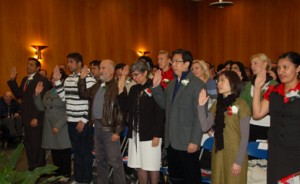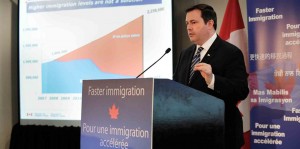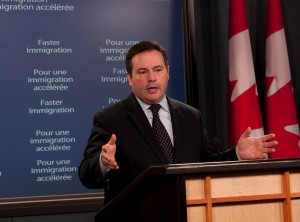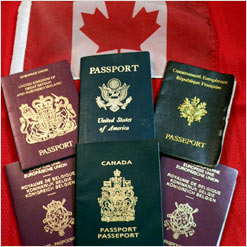Close to three months after the new Express Entry system started, and after four invitations, the first set of instructions have been released, where some of the invitees did not have LMIA/LMO’s or PNP nominations.
On March 20th, 2015, Express Entry system, round #5 was released. The number of invitees totalled 1620. The minimum score of those invited is 481.
This is great news for the majority of applicants in the Express Entry pool as many have started to feel discouraged by the high number of points in the previous four invitations.
What do the Experts think?
As licensed immigration consultant Alex Khadempour points out, there is no need to panic: “This is just the start. Immigration Canada did not want to open the floodgates by inviting a high number of people at the beginning. This is why only those with PNP nominations or LMOs/LIMAs were invited at first to make sure the system works. You will now see the minimum score start to go down.”
Immigration Canada accepts over 160,000 applicants a year under the economic programs such as Federal Skilled Worker, Canadian Experience Class, Federal Skilled Trades and some PNP programs. Only a small fraction of these applicants have LMOs/LMIAs or PNP nominations.
Tips for Applicants
Alex Khadempour adds: “Calculated patience is always necessary when it comes to dealing with immigration, especially when a new program or system is launched. You should keep your eyes on the minimum scores and see how close you are. At the same time, if there is an opportunity for you to receive a provincial nomination or an LMIA, which guarantee that you will be selected and invited, you should take advantage of that opportunity.It’s also very important to approach this process with caution and precision. One tiny mistake in one of the steps can ruin your chances in the future.”
Be sure to go over all the guidelines, regulations and seek professional help, if necessary, to make sure you don’t make any errors in how you submit your information and approach the multi-step application process.










